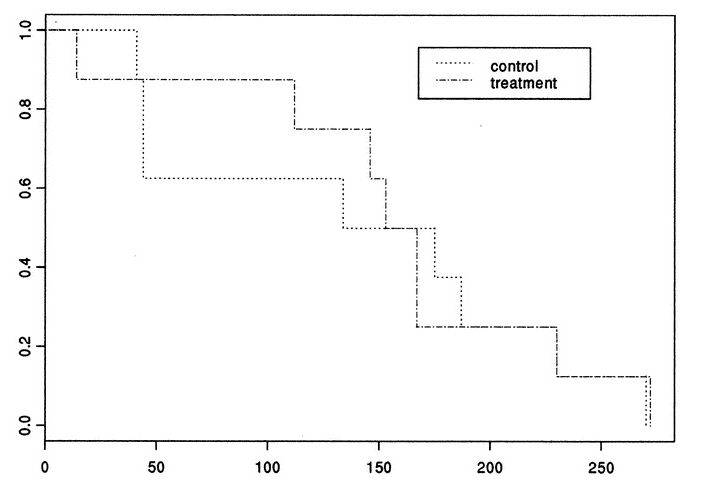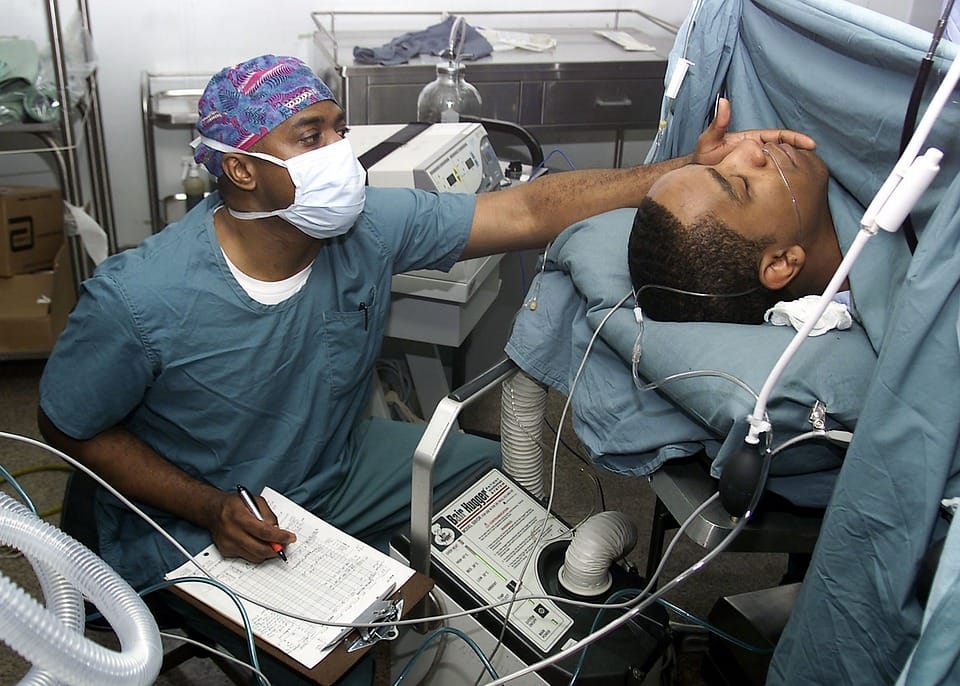It is widely believed that each anesthesia takes away five years of a person’s life. We decided to check whether this is supported by scientific research.
Information about such dangers of anesthesia can be found on many websites And forums. This same one question patients regularly ask doctors. The prevalence of this belief is also evidenced by folk art, in particular common joke: “Before surgery, a patient asks an anesthesiologist: “Is it true that anesthesia takes away five years of life from the patient and gives them to the anesthesiologist?” The anesthesiologist replies: “I’ve been living for 140 years, but this is the first time I’ve heard of this.”
In everyday life, anesthesia is often referred to as any type of anesthesia - for example, they say “to treat teeth under anesthesia,” meaning local anesthesia. At the same time anesthesia is an artificial, reversible state of depression of the central nervous system, in which sleep occurs, loss of consciousness, relaxation of skeletal muscles, reduction or shutdown of some reflexes, and loss of pain sensitivity. That is, under anesthesia a person sleeps conditionally, but under another type of anesthesia remains conscious. Many people encounter local (regional) anesthesia during treatment and dental implantation or laser vision correction. To regional anesthesia also applies epidural anesthesia, which allows, while the patient is conscious, to perform a cesarean section or to anesthetize childbirth. Under regional anesthesia in some cases Maybe appendicitis may also be removed. Patient has the right to choose the method of anesthesia in situations where there are different options.
There is also another type of technology that allows operations to be carried out - sedation. With some types of sedation, the patient remains conscious, breathes independently, can follow simple commands from the doctor, but at the same time is calm and relaxed, in a drowsy state and with a high degree of probability will not remember what is happening in detail.
Since most statements refer only to anesthesia as such, in the text we will only consider its effect on life expectancy. First, let's turn to ordinary logic. The idea that anesthesia takes away five years of a person's life implies that it is known in advance how long a person will live. However, such a figure cannot be derived even after carrying out all the latest diagnostic procedures. Various screenings can help diagnose diseases at an early stage or identify those to which a person is more prone due to family history or lifestyle. For example, in a situation where a woman's older relatives have died of breast cancer, the doctor may suspect mutation in the BRCA1 and BRCA2 genes and suggest appropriate monitoring or even preventive surgery, but he will not be able to calculate the age of death of this woman.
The second argument against such a belief is also based on logic. Some people voluntarily undergo a huge number of plastic surgeries (let's say that some of them were not under anesthesia, but under local anesthesia). For example, American Cindy Jackson, introduced in the Guinness Book, underwent 47 cosmetic procedures, 14 of which were plastic surgeries, which means they required anesthesia. Let’s do the math: if each anesthesia took away five years of her life, in total she would have to “lose” 70 years. In 2022 she turned 66 years old. That is, in total, without operations, she would have to live 136 years and re-enter the Guinness Book, beating previous longevity record (122 years).
Also, the stars should have turned out to be long-living record holders. For example, the singer Cher, according to foreign journalists, transferred at least 60 operations (she herself denies this number). That is, anesthesia would have taken her as long as 300 years, which, with her current age of 76, breaks all imaginable and inconceivable records!
It is interesting, in the context of this belief about anesthesia, to consider the prospects for surgical intervention in older people. According to the logic of the statement about anesthesia taking away years of life, those who were allotted to live less than five years after the operation should all die on the operating table and not recover from anesthesia. Even, apparently, if the cause of their death was, for example, a car accident, “planned” a year after the operation under anesthesia.
Scientific evidence also refutes the relationship between anesthesia and a shortened life span. Comparative studies have not been conducted on humans due to their unethicality, but there are experiments on animals. Researchers from Harvard Medical School divided 16 rats aged 22 months (average age life animals two, two and a half years old) into two groups: some were given anesthesia for two hours, others did not receive anesthesia. Rats from the control group lived an average of 140 more days (about four and a half months), and rats that underwent anesthesia lived an average of 158 days (a little more than five months).

The scientists even noted “a trend toward increased lifespan in previously anesthetized rats.” The researchers also noted that individual observations demonstrate that people who have undergone surgery under anesthesia in old age do often die earlier than their peers. However, conclusions cannot be drawn based on them about the dangers of anesthesia. After all, these people were put under anesthesia not for the sake of studying its effects, but because of the corresponding health pathologies, which, apparently, were the reason that they died earlier than their peers.
Moreover, in most cases, with the possible exception of plastic surgery, the patient is given anesthesia in order to carry out the necessary surgical intervention and save a life. For example, if you do not operate on a person who has been in a serious accident, then in many cases he simply will not survive. Also surgery under anesthesia for cancer patients Maybe significantly extend life or improve its quality.
Thus, anesthesia itself, judging by animal experiments, does not take away years of life. Moreover, the belief about the years taken away also contradicts ordinary logic. However, those who have undergone surgery may indeed die earlier than their peers, but not because of anesthesia, but because of the disease that required the operation.
Cover image: Pixabay

Not true
Read on the topic:
- Are there any confirmed cases of organ theft from living people by “black transplantologists”?
- Is it true that the term “caesarean section” is associated with the circumstances of the birth of Julius Caesar?
If you find a spelling or grammatical error, please let us know by highlighting the error text and clicking Ctrl+Enter.






